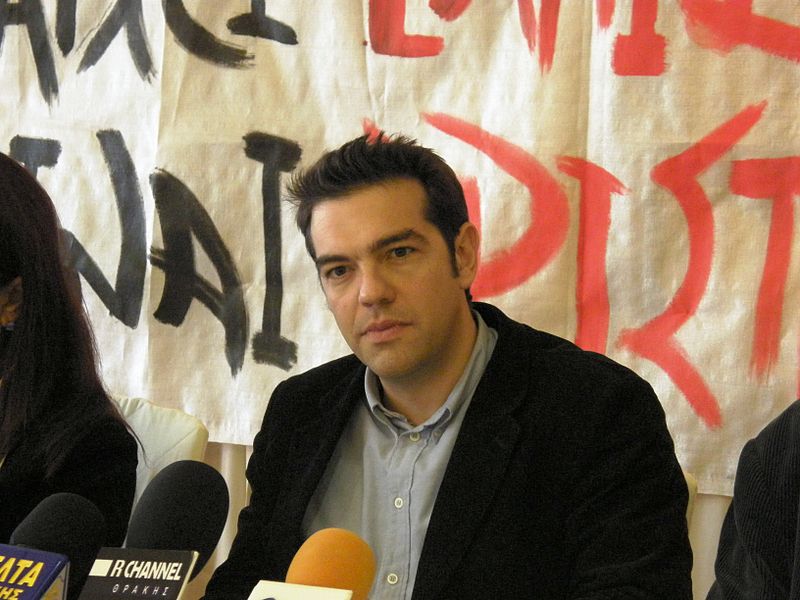Greece surrendered, but the real defeat was for Europe
Greek MPs recently approved an austerity package with the Eurogroup. Michael Cox writes that the conditions attached to the bailout were exceptionally tough and aimed largely at deterring other left-wing parties, such as Podemos in Spain, from challenging the status quo. He argues that while the final agreement represented a surrender by the Greek government, the lack of solidarity shown by other Eurozone states during the crisis raises serious questions about the nature of the European project.
In a recent article on the Greek crisis, I argued that a much bigger game was being played out in Europe over Greece – and the name of that game was deterrence. In plain English, make the terms of any deal with any rebellious, indebted, government in Europe so tough – almost unacceptable – that nobody in their right mind would ever dare challenge the status quo ever again. And while one is at it, make sure that everybody else understands that the terms of the agreement – like the one recently foisted on the Greeks – is seen for what it is: unconditional surrender.
But what does this say about Europe? Not much according to John Hulsman writing recently in the popular give away London newspaper Cityam: “The weekend’s European proposal to Greece”, he made clear, was nothing less than the “political surrender” and “evisceration” of Greece “as a sovereign entity”; a quite “remarkable feat” for a “a system” like the European Union “predicated on the pooling of sovereignty” and the idea of solidarity. Well, there has not been much solidarity on display during recent days. But at least the Europeans – or at least some of them – have proved one thing: they are not the soft-hearted, appeasement-loving, pushovers from Venus caricatured by American neo-con critic Robert Kagan a few years back just before the Iraq War. Not at all. Nor did the Europeans need 250,000 troops to discipline a country. All it needed was the euro.For that is what the Greek Prime Minister recently did. Surrender. But all this, I would insist, has a purpose. As another commentator recently pointed out, the current agreement might be very hard on the Greeks. But as Jacob Wittgenstein of the Peterson Institute in Washington went on to point out, it will “ultimately result in it being harder for Syriza-like parties to be electable” in any other European country. In the longer term, “the political spill-over from Greece” will be “pro-centrist”. Spain and Italy may have been saved from the left.
Still, the terms were so tough and so intrusive – and so unlikely to lead anywhere but to further immiseration for the Greeks – that one is left wondering what is really going on. Even the IMF seems baffled judging by its most recent intervention. The EU, it has now made public, has got it wrong. The Greek debt is unsustainable; and long term, the new agreement can only produce further economic stagnation, not recovery. And all this only a few hours before the Greek Prime Minister has to try and sell a deal he plainly does not believe in to the Greek Parliament.
Where in the end this will all lead is now anybody’s guess. I arrived in Greece a couple of weeks ago assuming that some kind of compromise agreement would be arrived at based on that very EU principle of ‘consensus’. Well there has been little of that on display recently. And so we are now where we are: in a state of deep uncertainty.
But one thing is fairly obvious as we move forward into the unknown. If Greece is still in deep trouble (I was assured by a leading economist the other night that Grexit is still going to happen) then so too is the European project. With Germany now looking like the bully of Europe, France and Italy at odds with Germany, and the North now more distant from the South than it has been for an age, the EU is in need of some serious repair.
Meanwhile, the outside world looks on in disbelief. Certainly, the Americans have not been impressed. The Chinese are bewildered. And closer to home in the UK, the Eurosceptics are riding high. Nor, if I am very much mistaken, have I ever seen Putin looking quite so happy of late. And for the time being at least, he probably has much to be smiling about.
—
Note: This article gives the views of the author, and not the position of Democratic Audit UK, nor of the London School of Economics. It originally appeared on EUROPP – European Politics and Policy. Please read our comments policy before commenting.
—
 Professor Michael Cox is Director of LSE IDEAS and Professor of International Relations at LSE.
Professor Michael Cox is Director of LSE IDEAS and Professor of International Relations at LSE.






 Democratic Audit's core funding is provided by the Joseph Rowntree Charitable Trust. Additional funding is provided by the London School of Economics.
Democratic Audit's core funding is provided by the Joseph Rowntree Charitable Trust. Additional funding is provided by the London School of Economics.
https://t.co/lCsKIEobN0 so so sad for greece
Greece surrendered, but the real defeat was for Europe – https://t.co/rIbFF4DVDz
Greece surrendered, but the real defeat was for Europe: Greek MPs recently approved an austerity package with … https://t.co/UFbuTt4u16
‘#Greece surrendered, but the real defeat was for Europe’ – not about #greeececrisis at all?https://t.co/vzlg3aGlMm #EU #eurozone #podemos
Greece surrendered, but the real defeat was for Europe https://t.co/epijGxhmK9
Greece surrendered, but the real defeat was for Europe https://t.co/kJxwxTe8HU #Option2Spoil
Greece surrendered, but the real defeat was for Europe https://t.co/LE1wHhUt1I https://t.co/ld9Fwd4gze